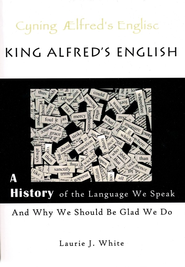Advertising is everywhere. TV commercials bombard you 18 minutes out of every hour, but they are not the only places companies try to sell their products. Think of billboards, huge pictures of food products stuck to restaurant windows, and even your lowly cereal box.
Yes, even after you’ve bought the cereal, you still get advertisements about it. Take a look at a cereal box and notice all the adjectives there to describe the cereal and tell you how great it is. Here’s a sentence from my Cinnamon Life® cereal:
Read More


















